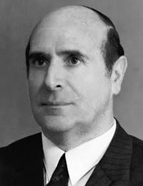

In 1961, he published a collection of essays titled Problemática da História Literária [Issues in Literary History], which includes articles of various types, covering a period of more than four centuries. In the preface to the revised and expanded second edition, Jacinto do Prado Coelho reflects broadly and acknowledges his own shortcomings regarding the theoretical and methodological approaches he has adopted throughout his career: "I have been, amateurishly, a historian of culture, a biographer, a psychologist; I have dedicated myself to immediate criticism (which is inevitably impressionistic or intuitive) and I have even done impressionism outside literary criticism." Bridging the literary tradition envisioned by Romanticism and the multiple 20th-century theories — such as stylistics, new criticism, Russian formalism, structuralism, and semiotics — all of which prioritised the verbal nature of literature, he is mindful of reception aesthetics, particularly Jauss's focus on the relationship between the work and the reader. He concludes that different levels and approaches can be integrated into a "global project for the study of literature". In this project, criticism merges with history, and synchrony aligns with diachrony. The critic, motivated by a love of literature and an enduring desire to deepen their understanding, must also recognise the limitations and inherent fragility of their work.
Two other essay collections followed: A Letra e o Leitor [The Letter and the Reader] in 1969, and Ao Contrário de Penélope [Unlike Penelope] in 1976. In the first volume, which includes over twenty studies on authors from Camões to contemporary poetry, he proposes that "the true act of criticism requires a combination of intuition, reflection, and analysis," with varying proportions of these elements depending on whether the approach is more rationalist or more subjectivist. Acknowledging that the collected texts reflect "a restless search, and therefore an evolution", he acknowledges that his greatest desire has always been to “envelop the literary work", attempting to capture it within a network of relationships. In the second collection, published during a time of democracy, Jacinto do Prado Coelho uses the allegory of Penelope and her web, unravelled every night to the despair of her suitors, to highlight the contrast between the faithfulness of Ulysses' wife and the unfaithfulness of the critic, who incessantly seeks literature, aiming to uncover what endures over time, thereby adding meaning to the works and creating a web that "is neither a disguise nor a trick: it is a testament, a gift." This is followed by a very important reflection on the teaching of literature and over thirty essays on authors and works from the 19th and 20th centuries. The elegance and clarity of his style bear witness to the pedagogical concern present throughout his vast and diverse career.
